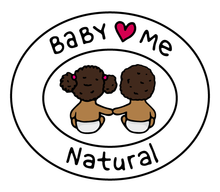Eczema

What is Eczema?
Eczema (eg-zuh-MUH) is an inflammatory skin condition that causes itchiness, dry skin, rashes, scaly patches, blisters, and skin infections.
7 types of Eczema
Atopic dermatitis: a common form of eczema that causes inflammation, dryness, and itchy skin. While typical in small children, it can occur at any age.
Contact dermatitis: also called allergic contact dermatitis, this form of eczema is brought on by environmental triggers.
Neurodermatitis: also called discoid eczema, this form affects small patches of skin. It makes them itchy and scaly.
Dyshidrotic eczema: this type of eczema dries out the skin and can cause a burning sensation, rashes, and blisters.
Nummular eczema: also called nummular dermatitis, this form creates small, rounded lesions all over the body, but especially on arms and legs.
Seborrheic dermatitis: an inflammatory form of eczema that affects your scalp.
Stasis dermatitis: a skin discoloration on the legs which looks similar to varicose veins.
What is lichenification?
Lichenification is when your skin becomes thick and leathery. This is usually a result of constant scratching or rubbing.
Flare-ups & Darker Skin Tones
Eczema flare-ups tend to look darker brown, purple, or ashen grey in color. In the absence of characteristic redness.
Common Eczema Triggers
Fabrics: Polyester, wool, nylon, rayon
Fragrance: Found in personal hygiene or household products like soap, lotions, shampoo, detergent soap, and perfume.
Environment: Dry air, hot or cold weather, change in season, low or high humidity, pet dander, dust mites.
Physical: stress (temper tantrums), sweat, saliva, hormones, germs, infection, excessive scratching, excessive sebum on the skin, overgrowth of yeast on the skin.
Allergies: food allergies, airborne allergies
Food sensitivities
Insect bites
Existing skin infection
Metals: Nickel
